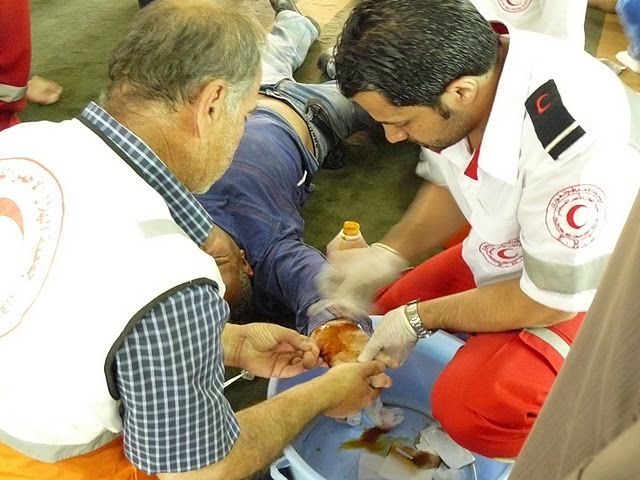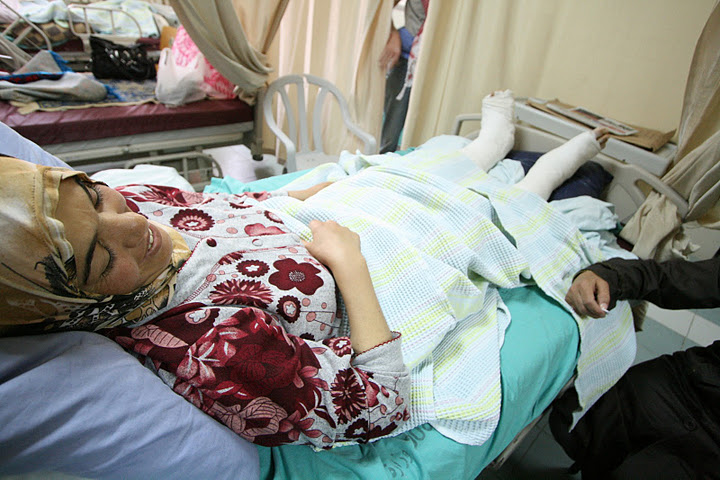Tag: Olive Harvest 2011
-

Permission to enter their own lands: Kufr Qaddoum rampaged again by military
21 October 2011 | International Solidarity Movement, West Bank In the village of Kufr Qaddoum the people held a demonstration for the 17th Friday in a row. The demonstration started around 11:30 AM in the center of the village and consisted of approximately 80 people. The procession only made it to a barbed wire that…
-

Woman flees harvest to escape violent settlers and wild boars
20 October 2011 | International Solidarity Movement, West Bank Early Thursday morning, a Palestinian woman in Beit Furik was picking olives when a settler began to chase her and set loose wild hogs to chase after her, causing her to fall and suffer broken bones in both her legs. Muhaya Khatatba was in her olive…
-

In Photos: The survival of olives
16 October 2011 | International Solidarity Movement, West Bank The olive harvest started in theWest Bankin early October and will continue in some villages until mid-November. Olives have been cultivated in Palestinian land for thousands of years. Around 95% of the harvest is used to make olive oil, with the remainder for pickles, table olives,…
